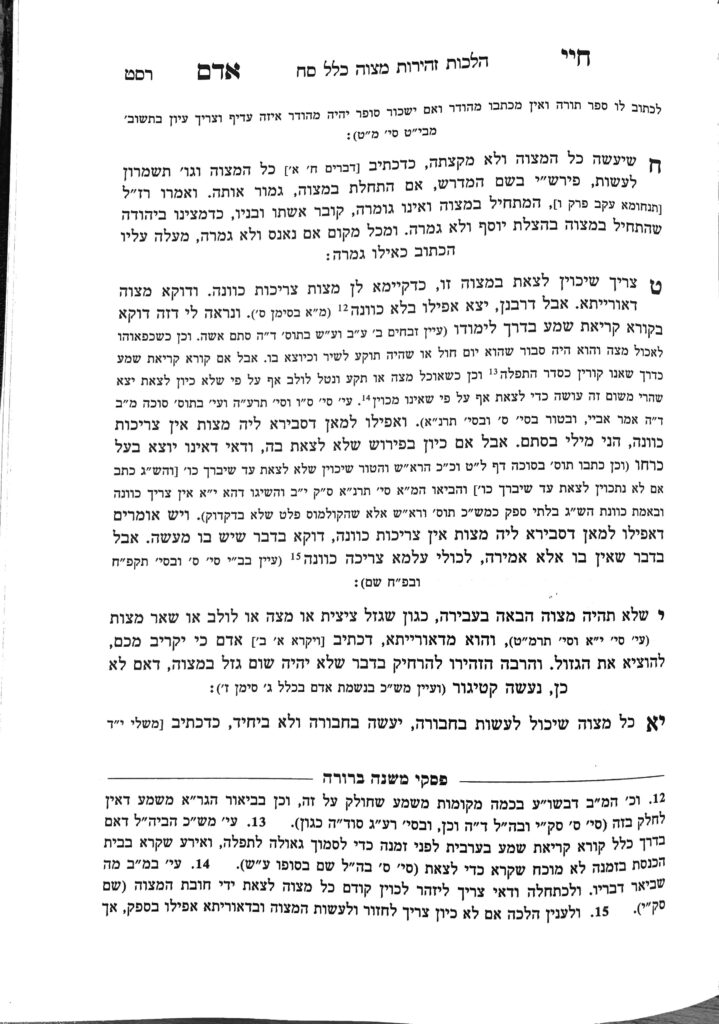We are continuing in siman 10, discussing the concept of mitzvah habaah b’aveirah. We left off discussing the practical application of tzoah. We learned that if one learns or davens in the presence of tzoah, it is a mitzvah habaah b’aveiah. Today, we will clarify the practical halachic issues of tzoah.
The issue of tzoah plays out regarding a child who has a dirty diaper in which there are feces and a person recites birchas hamazon, brachos or tefillah in the presence of the diaper. The pasuk says vechisisa es tzeiasecha, one must cover that which comes out of them, so that it is machanecha kadosh when engaging in devarim shebikedusha (Devarim 23:14). Chazal learn that for the purposes of “covering”, it is sufficient for the tzoah to simply be covered over in order to engage in devarim shebikedusha without an issue of compromising machanecha kadosh. Thus, since the diaper is covered, if it does not smell, one may daven in its presence.
If the diaper smells, even though it is covered, since one can recognize its presence, it is considered as though it is not covered, so one cannot daven or recite brachos in its presence. Therefore, a person must distance themselves from it.
Regarding distance from uncovered tzoah, one must distance themselves to the point they can no longer smell the tzoah, and then distance themselves an additional four amos. However, if the tzoah is covered, some poskim assume that a person only has to distance themselves to the point they no longer smell it. Thus, if a child has a dirty diaper, but it cannot be smelled from where the person is standing, it is considered covered for the purposes of davening and so on.
Taking this point a step further, Rav Elyashiv ztl paskened that one is not chayav to check a diaper just to ensure they do not smell it, for as long as they do not smell it from their current place, they can assume it is fine. Other poskim disagree, and hold that the nature of children is to wander, or that the person watching them may go to them if they need something. Even if there is no smell from the person’s current place, they may end up wandering into the vicinity of the smell, so the diaper should be checked beforehand. Certainly, if one is holding a baby in their lap, they should check before davening or birchas hamazon, because it is simple to do.
Regarding a bedieved situation, since it is not as clear that one is chayav to check (because it is covered), many poskim do hold that the bracha does not need to be repeated.
Regarding birchas hamazon, we learned (shiur 1422) that the Chayei Adam holds that it is more lenient than tefillah, so there may be more reason to be lenient. One should discuss the question with their rav.
Summary
One may not recite devarim shebikedusha in the presence of tzoah. One must distance themselves until it no longer smells, and then an additional four amos.
If the tzoah is covered, one must distance themselves to the point that they no longer smell it.
It is a machlokes whether a baby’s diaper must be checked before reciting devarim shebikedusha in order to preemptively avoid a situation in which one ends up reciting devarim shebikedusha in the presence of tzoah. One should discuss the question with their rav.



